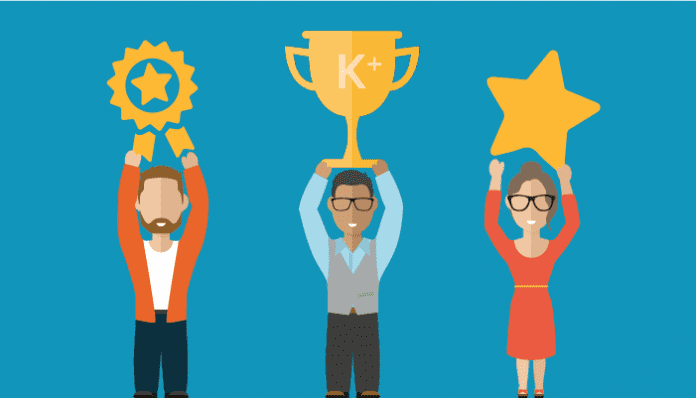According to recent surveys, Millennials will constitute 75% of India’s entire workforce by 2025. This generation is driven, passionate and goal-oriented. They try to go above and beyond not just to complete the tasks given to them but also to learn more in the process.
It is due to this constant drive and charisma that these employees demand more than just the traditional forms of workplace appreciation.
The modern workforce, although extremely self-motivated get easily bored in the absence of material and non-material appreciation for the hard work that it puts in. In fact, the lack of significant recognition and rewards is the most common reason for dissatisfaction with a job role cited by employees during exit interviews.
“As more organizations realize the need for retaining top talent, Most of the CHROs are looking for innovative ways to raise employee motivation and morale through new-age reward strategies.”
These days organizations are more diverse and their motivating factors differ from the employee. Salary and traditional benefits still matter, but employees are looking for more than money. They want to work for a company that invests in their
- Wealth
- Health
- Well-being
- Career
Now more than ever a truly differentiated total rewards strategy is critical for any organization due to the Next-Gen workforce.
Findings from Aon’s “Workforce Mindset” study reveal that it is critical to identify and create interesting work opportunities for this generation. In fact, research conducted by the Corporate Executive Board indicates that 68% of Millennials expect to be promoted within two years of working for the company and 45% will quit their job if they don’t see a career path that they think is fulfilling.
The organization can enhance the employee experience by including rewards that support an individual’s career and total well-being (financial, emotional and physical). They can also create an emotional connection with employees by adding purpose to the EVP, so that employees can find more significant meaning in the work they do or align with the organization’s larger societal purpose.
Organizations that take this a broader view of rewards will have a better chance at leveraging the power of a thriving, motivated and productive workforce to drive their success in the future of work.
According to the current trends, it is necessary to revamp the reward programs for Next-Gen workforces as follows
1. Rewards Linked With Business Outcomes
Reward programs work if they are strongly linked to business objectives and the employees know what is expected of them in their jobs – employees need to see the connection between their own work and the overall organizational goal. A reward has a key role to play in demonstrating organizations’ values, commitment to employees, and the value it places on performance.
Hence it requires to find what kind of behavior will have an impact on the business, based on that organization have to design the reward programs accordingly.
2. Personalized Rewards
One size doesn’t fit all. To put it simply, nearly every organization’s employee base is highly individualized, and what motivates one person won’t necessarily motivate another. So, it is better to tailor-fit an incentive program to individual wants and desires.
Generational shifts in employee values and preferences require changes to an organization’s rewards strategies and designs.
Change is something we have seen endure the test of time and has been passed down from generation to generation, as well as employee to employee.
Clear Messaging is essential in achieving the engagement of employees towards the organization’s rewards program. What is the purpose of an employee rewards program? Is it to improve customer service? Team building? Training? Be clear and concise. Then, define your rewards program.
While designing a perfect rewards program for Next-Gen workforce, the organization should consider the following guiding points:
- Recognition should be given whenever you notice an accomplishment or behavior worthy of praise, not during designated employee appreciation days.
- Reward programs work if they are strongly linked to business objectives and the employees know what is expected of them in their jobs.
- A peer to peer recognition program helps in improving employee engagement due to an increased sense of connection and belonging. It also accelerates collaboration across teams that further improve business productivity.
Hence, each organization must know its workforce first ( Baby boomer, GenX, GenY, Millennials) and should give them the choice of picking rewards catalog and appreciate/ encourage recognition among peers and top of it, make the reward policy easy and clear to all employees.
Subscribe to our Daily Newsletter!









